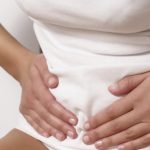Leg cramps during pregnancy. Causes and first aid
Cramps are very unpleasant, but many women suffer from leg cramps during pregnancy. However, you should know that frequent cramps are not a normal body condition. It is a sign that your body lacks something.

A cramp is an involuntary and sudden muscle contraction. More often crams occur in legs, but sometimes also in arms and neck. In pregnant women, cramps occur predominantly at night or in the morning. Typically, the most severe cramps are in the middle of pregnancy, when the baby is actively developing and needs many vitamins and minerals.
Causes of leg cramps in pregnancy
- Lack of minerals
The main cause of cramping in pregnancy is the body’s deficiency in minerals — potassium, calcium and magnesium, and vitamins — vitamin C. In the first trimester, many women lack for minerals because of early toxemia, which is accompanied by vomiting and loss of appetite. In the second and third trimesters, the needs of your growing baby increase.
- Low blood glucose
Low blood glucose can also lead to cramps. This is why pregnant women must eat often and in smaller portions. Doing this, you’ll support your normal blood sugar level.
- Varicose veins
In the last trimester, varicose veins can be the cause of severe leg cramps. The affected veins are not able to cope with your increased weight, the blood begins to stagnate in them — and edemas appear. Impaired circulation causes difficulties in muscle nutrition. Your legs don’t get enough minerals.
- Inferior vena cava syndrome
IVCS causes spasms in leg muscles. In the supine position the uterus compresses the inferior vena cava. This leads to weak venous outflow, and, consequently, to calf cramps.
- Other causes
Improper use of diuretic drugs (to relieve swelling) can cause washing-out of minerals from the body. Repetitive leg cramps can occur because of anemia. Smoking and caffeine also provoke night leg cramps.
Keep in mind that frequent cramping is no joke. For example, magnesium deficiency increases the tone of the uterus and may lead to a miscarriage.
First aid for a leg cramp
If you have a leg cramp, you need to pull the muscle, which has developed a spasm. Don’t panic, breathe calmly and deeply. If the spasm occurred in your calf muscle, flex your toes or foot upward. Repeat several times to relieve the pain.
Then you need to massage your muscles to heat them and restore blood circulation. You can pinch your calf muscle. When you are better, lie down with raised legs. This will ensure blood flow and help avoid repeated cramps.
How to treat leg cramps?
First, not by yourself. As soon as possible, contact your doctor. If necessary, you will pass additional laboratory tests and have consultations with a neurologist and endocrinologist. Usually in case of cramps, doctors prescribe vitamin complexes to compensate for a deficiency of minerals.
Secondly, you should avoid wearing high-heeled shoes.
If you have to be in a standing position at work, then do simple exercises to normalize blood circulation in your calf muscles. Roll your feet from heel to toe and back. Rise on the toes for several times. In breaks, sit down and lift your legs. Do foot massage in direction of venous blood flow — from foot to hip.
If you have varicose veins, wear special tights or stockings.
Often take contrast showers. You can also rest with your legs in salty water. For this, dissolve three tablespoons of salt in five liters of water.
Lead an active life: go for walks, do exercises for pregnant women, visit a pool. To prevent leg cramps at night, you can sleep in woolen socks.
Special anti-cramp diet
Eat what your body needs — potassium, calcium and magnesium. There is much potassiumin dried apricots, raisins, beets, melon, bananas, beans, potatoes, broccoli, beef liver and milk. Potassium can also be obtained from baked potatoes. Your daily requirement of potassium is 4−5 grams.
Dairy products, green vegetables (broccoli, cabbage, turnip leaves, cauliflower, asparagus), egg yolks, various legumes, nuts and figs are rich in calcium.
A pregnant woman needs about 450 mg of magnesium daily. It can be found in almost all foods. Whole seeds, nuts, sunflower seeds, legumes, green vegetables, carrots, green onions and spinach are еspecially rich in magnesium.
To compensate for a deficiency of glucose you should sometimes eat «simple carbohydrates» — sugar, candies, cakes — but not too much.




